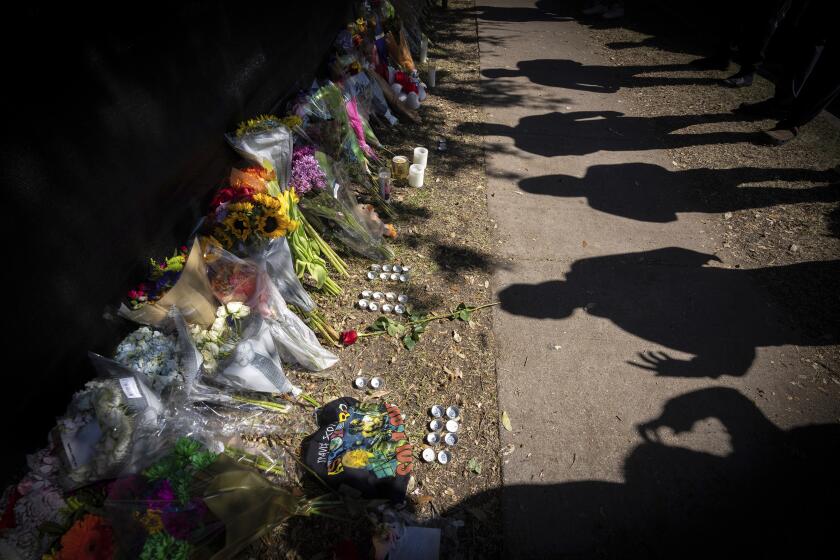Soviets Won’t Scrap Atomic Energy Plans : World Can Learn From Chernobyl Tragedy, Official Says
A Soviet official told nuclear experts meeting in Vienna today that the Chernobyl accident was a disaster for the Soviet people but would not halt the use of nuclear energy in his country.
Valery Legasov of the Soviet Academy of Science spoke to 500 technical experts from more than 50 countries attending a five-day meeting at the International Atomic Energy Agency called to discuss an official Soviet report on the accident.
Legasov, head of a 28-member Soviet delegation, said: “The accident at Chernobyl was a disaster for our citizens. It has brought with it considerable material and moral loss, which has distorted the current economic and scientific activity of many of our enterprises and organizations.”
More Nuclear Energy
But he added that Soviet experts were sure that even an accident like Chernobyl could not stop the further use of nuclear energy in helping mankind’s development.
“We hope that the medical and radiological experts will find this information helpful to clarify the possible medical consequences of an accident at a nuclear power plant,” he said.
The Soviet experts were interested in a “very correct and professional” discussion, he said.
Thirty-one people have died as a result of the explosion and fire at the Ukrainian plant on April 26 that spread clouds of radioactive particles over much of Europe.
More than 200 people suffered acute radiation poisoning, and 135,000 living within 20 miles of the stricken power station were evacuated.
Human Error Blamed
“The accident is traced above all to human failures,” said Austrian scientist Walter Binner, director of the Institute for Reactor Safety near Vienna.
“The service personnel in Chernobyl could turn off some safety systems manually and that apparently is what happened. So you naturally ask yourself what good are safety systems if they can be blocked by human misjudgment,” said Binner, who received the report last week.
Hans Blix, director-general of the international agency, said the special session had been called to learn from the “painful experience” of Chernobyl.
“It is true that many of the lessons to be drawn are specific to the type of reactor and not directly to other types,” he said.
“Nevertheless, an understanding of the physical chemical process of the accident will contribute to our common fund of nuclear knowledge.”
Blix said nuclear plants provided 15% of the world’s energy needs.
“We have passed the point of no return,” he said.
More to Read
Start your day right
Sign up for Essential California for news, features and recommendations from the L.A. Times and beyond in your inbox six days a week.
You may occasionally receive promotional content from the Los Angeles Times.





